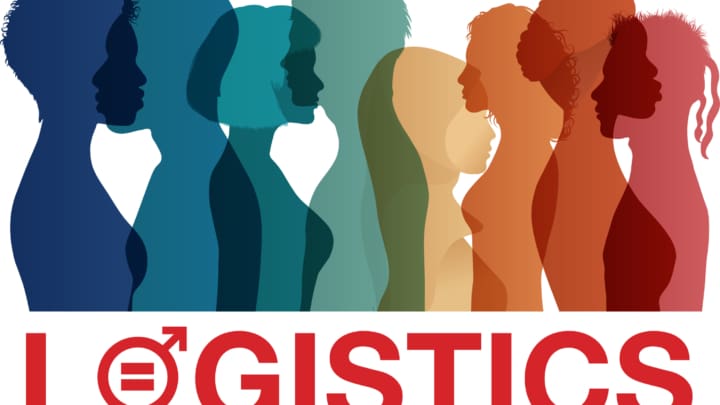
Fostering a better male-female balance
Despite gradual improvements, the gender imbalance in logistics remains significant.
For instance, women constitute only 6% or less of the truck driver population in Europe.
Addressing this gap, particularly during a time of driver shortages, is essential for creating a balanced and efficient workforce. Research has consistently shown that diverse teams drive stronger performance and better business outcomes.
However, operational and leadership roles in logistics continue to be predominantly held by men, highlighting the need for targeted action to promote gender balance.
Achieving gender equality in the workforce could significantly impact the global economy, potentially adding $28 trillion, or 26%, to annual global GDP by 2025.
The International Labor Organisation analysed diversity management in 13,000 companies across 70 countries and concluded that more diverse companies perform better in terms of talent recruitment and retention, creativity, innovation, and turnover.
Similarly, BlackRock’s analysis of 1,500 MSCI companies over the past decade found that companies with the most diverse workforces outperformed their less diverse peers in return on assets (RoA) by 29% per year from 2013 to 2022.
Yet, bridging the gender gap globally is projected to take 131 years, according to the World Economic Forum. While these figures provide a general overview, the challenge is even more pronounced in the logistics industry. These statistics triggered the founders to set-up a unique initiative and join forces beyond competition.
A real-world example of co-opetition
Based on data-driven top-down awareness, the WIL consortium wants to become an inspiring platform for company action plans and aims to drive commitment by optimising conditions that promote diversity while creating an inclusive and thriving logistics ecosystem.
The collaboration between the 10 parties in this consortium is unique within the industry. It is an exemplary model of co-opetition: collaboration beyond competition.
The collaborative commitment of these 10 organizations transcends competition barriers and is illustrative for the importance of diverse perspectives and backgrounds.
Cathy Budd, CPO, and purchasing vice-president of Dow emphasised that “Women in Logistics’ mission is to bridge the gender gap by building an inclusive ecosystem that overcomes stereotypes and gender bias. Rather than embarking on a single initiative, the group has decided to join forces with several industry players.”
Hilde Essers, chairwoman of the board of H.Essers added that “by combining resources and efforts, a more substantial impact can be made. Achieving a more balanced male-female representation benefits everyone, and it all starts with this consortium.”
From ambition to impact
The consortium is initially focusing on the European chemical logistics industry, leveraging the expertise of its 10 board members, and addressing sector-specific needs such as compliance, safety, and sustainability through enhanced gender diversity.
To provide a concrete roadmap, the WIL consortium has chosen to concentrate efforts on three key target groups: drivers, operators and leadership.
The consortium will develop a platform to raise awareness, address leadership endorsement, share best practices, inspire the logistics community, advocate for promoting instruments and to leverage the collective influence for these key target groups.
In summary: the Women in Logistics consortium is dedicated to advancing gender equality and empowering women across all levels of the logistics sector through collaborative efforts, focused actions, and continuous stakeholder management.
